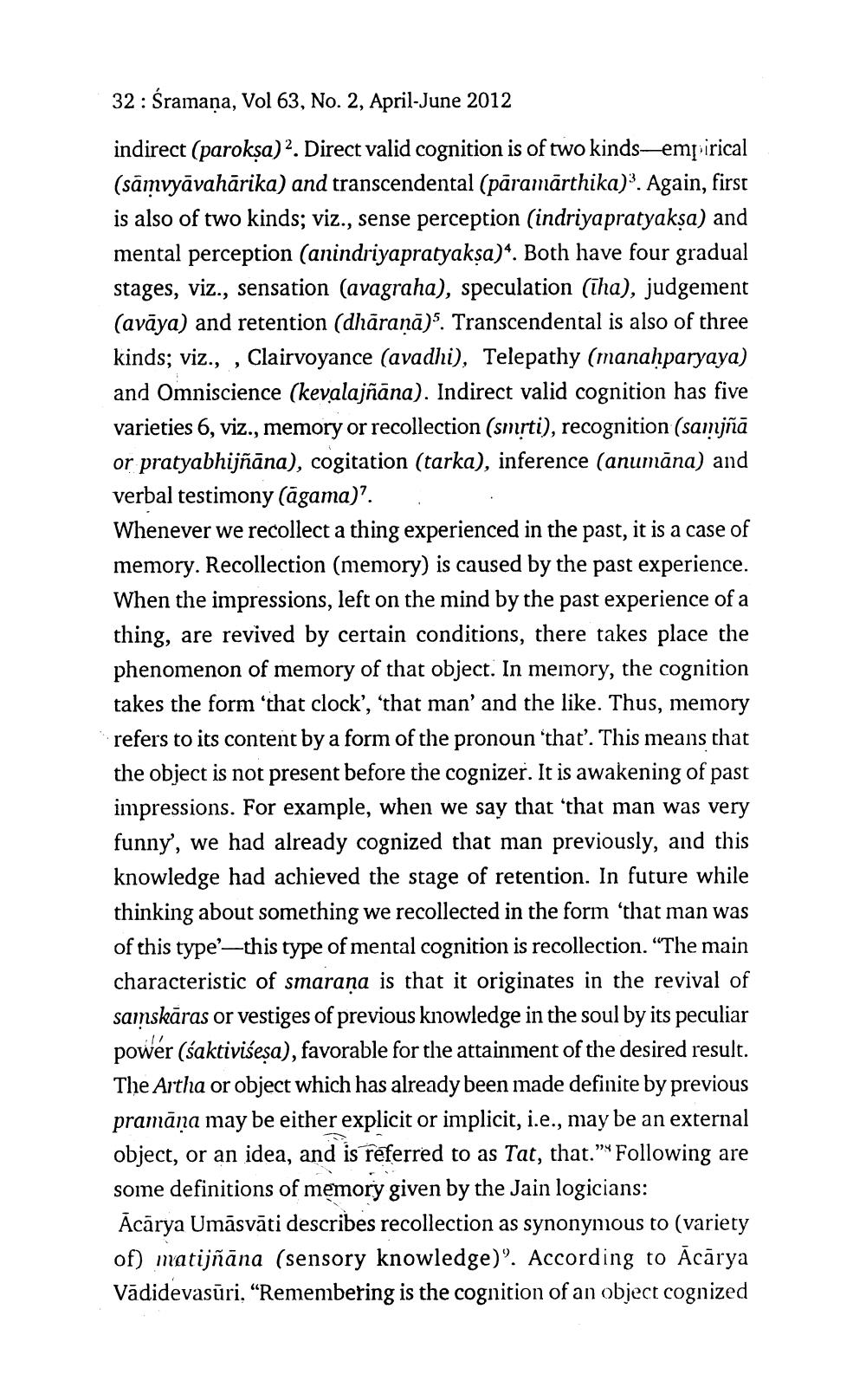________________
32 : Śramaņa, Vol 63, No. 2, April-June 2012 indirect (parokşa) 2. Direct valid cognition is of two kinds-empirical (samvyāvahārika) and transcendental (paramarthika)3. Again, first is also of two kinds; viz., sense perception (indriyapratyakşa) and mental perception (anindriyapratyaksa)4. Both have four gradual stages, viz., sensation (avagraha), speculation (īha), judgement (avāya) and retention (dhāraṇā)5. Transcendental is also of three kinds; viz., , Clairvoyance (avadhi), Telepathy (manahparyaya) and Omniscience (kevalajñāna). Indirect valid cognition has five varieties 6, viz., memory or recollection (smrti), recognition (samjñā or pratyabhijñāna), cogitation (tarka), inference (anumāna) and verbal testimony (agama)?. . . Whenever we recollect a thing experienced in the past, it is a case of memory. Recollection (memory) is caused by the past experience. When the impressions, left on the mind by the past experience of a thing, are revived by certain conditions, there takes place the phenomenon of memory of that object. In memory, the cognition takes the form 'that clock', 'that man' and the like. Thus, memory refers to its content by a form of the pronoun 'that'. This means that the object is not present before the cognizer. It is awakening of past impressions. For example, when we say that “that man was very funny, we had already cognized that man previously, and this knowledge had achieved the stage of retention. In future while thinking about something we recollected in the form 'that man was of this type—this type of mental cognition is recollection. “The main characteristic of smarana is that it originates in the revival of samskāras or vestiges of previous knowledge in the soul by its peculiar power (saktivisesa), favorable for the attainment of the desired result. The Artha or object which has already been made definite by previous pramāṇa may be either explicit or implicit, i.e., may be an external object, or an idea, and is referred to as Tat, that."' Following are some definitions of memory given by the Jain logicians: Ācārya Umāsvāti describes recollection as synonymous to (variety of) matijñāna (sensory knowledge)'. According to Ācārya Vādidevasūri, “Remembering is the cognition of an object cognized




